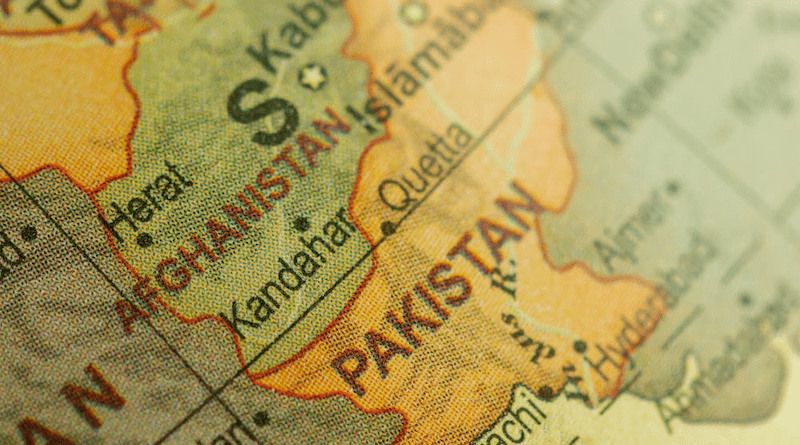Pakistan’s Trajectory: A Balancing Act Of Progress And Challenges – OpEd
By Amna Talha
Pakistan’s trajectory is shaped by a complex interplay of progress and challenges. The government, while not without its critics, is taking steps to modernize the economy, strengthen democratic institutions, and address longstanding issues in restive regions. Here’s a closer look at some key areas:
1. Fostering Economic Growth: From Infrastructure to Innovation
The Special Investment Facilitation Council (SIFC) established in 2023 serves as a game-changer for foreign direct investment (FDI). By streamlining bureaucratic hurdles and approvals, the SIFC aims to attract investment in high-growth sectors like Information Technology (IT), renewable energy, and agriculture. This can propel Pakistan’s ranking in the World Bank’s Doing Business index and unlock its economic potential.
- IT Hub Aspirations: Investments in data centers, software development, and tech startups can position Pakistan as a regional leader in the IT domain. A skilled workforce and growing internet penetration bode well for this sector’s future.
- Energy Security through Diversification: Encouraging investment in solar, wind, and hydropower projects reduces reliance on imported fossil fuels. This not only enhances energy security but also aligns with global trends towards clean energy solutions.
- Boosting Agricultural Productivity: Investments in modern irrigation systems, cold storage facilities, and food processing can significantly enhance agricultural output and exports. This can bolster Pakistan’s food security and create new opportunities for farmers.
2. Strengthening Democracy: Transparency and Participation
Peaceful and transparent elections are the cornerstone of a healthy democracy. The Election Commission of Pakistan (ECP) is taking steps to increase voter registration, particularly among young people and women. Additionally, the phased introduction of electronic voting machines (EVMs) aims to enhance transparency and minimize fraud risks.
Security forces play a crucial role in maintaining a peaceful environment where voters can cast their ballots freely. A neutral and professional security apparatus fosters public trust in the electoral process.
3. Gwadar Port: A Strategic Hub with Security Concerns
Gwadar Port on the Arabian Sea is a strategic linchpin of the China-Pakistan Economic Corridor (CPEC) project. The government, in collaboration with China, is making significant investments in Gwadar’s infrastructure, building new terminals, warehouses, and free trade zones.
- Shipping and Logistics Hub: Gwadar’s strategic location has the potential to become a major hub for cargo movement between China, the Middle East, and Africa. This can revitalize Pakistan’s maritime trade sector and create new jobs.
- Manufacturing and Investment: Establishing special economic zones can incentivize industries to set up base in Gwadar, benefiting from duty-free imports and exports. This can attract foreign investment and stimulate local manufacturing.
However, security concerns remain a hurdle. Security forces play a vital role in ensuring a stable environment for businesses and investors. Addressing underlying security challenges is crucial for Gwadar to reach its full potential.
4. Women Empowerment: A Driver of Progress
Women’s empowerment is not just a social justice imperative, but also a key driver of economic growth. The government has launched several initiatives to bridge the gender gap:
- Education Focus: Expanding girls’ schools nationwide and offering scholarships aim to increase female literacy rates and access to higher education. An educated female population contributes significantly to a nation’s development.
- Skills Training Programs: Equipping women with the qualifications needed to enter the workforce across various sectors fosters economic participation and financial independence.
- Women Entrepreneurship Initiatives: Government programs provide women-led businesses with access to microfinance loans and mentorship programs. This fosters entrepreneurship and boosts women’s role in the economy (UN Women – Empowering Women, Empowering Humanity)
5. Balochistan: A Delicate Balancing Act
The restive province of Balochistan faces security challenges that have hampered development. A multi-pronged approach is required:
- Beyond Security: While security forces contribute to maintaining order, a long-term solution requires addressing the root causes of conflict, such as economic marginalization and a sense of political exclusion.
- Investing in Development: Government investment in infrastructure projects, vocational training programs, and improved living standards in Balochistan can alleviate economic grievances and foster a sense of inclusion among the Baloch people. Development projects should be sensitive to local needs and involve the Baloch community in decision-making processes.
Conclusion
Continued focus on attracting investment, empowering women, and fostering development in Balochistan are crucial steps. By addressing security concerns, strengthening democratic institutions, and promoting inclusive economic growth, Pakistan has the potential to unlock its full potential and emerge as a major player in the region.
Looking Ahead: Challenges and Opportunities
Pakistan’s path forward presents both challenges and opportunities:
- Climate Change: Pakistan is one of the country’s most vulnerable to climate change. Investing in renewable energy and disaster preparedness will be crucial.
- Education Reform: While initiatives are underway, Pakistan’s education system faces challenges like teacher training and curriculum development. Improving the quality of education is essential for building a skilled workforce and fostering innovation.
- Regional Cooperation: Pakistan’s strategic location offers opportunities for increased trade and cooperation with regional neighbors like China, Iran, and Afghanistan. Strengthening regional ties can promote stability and economic prosperity.
By addressing these challenges and capitalizing on its opportunities, Pakistan can position itself for a brighter future.
This report provides a starting point for further exploration of Pakistan’s trajectory. As the country continues to evolve, understanding the interplay of progress and challenges is essential for informed analysis.

